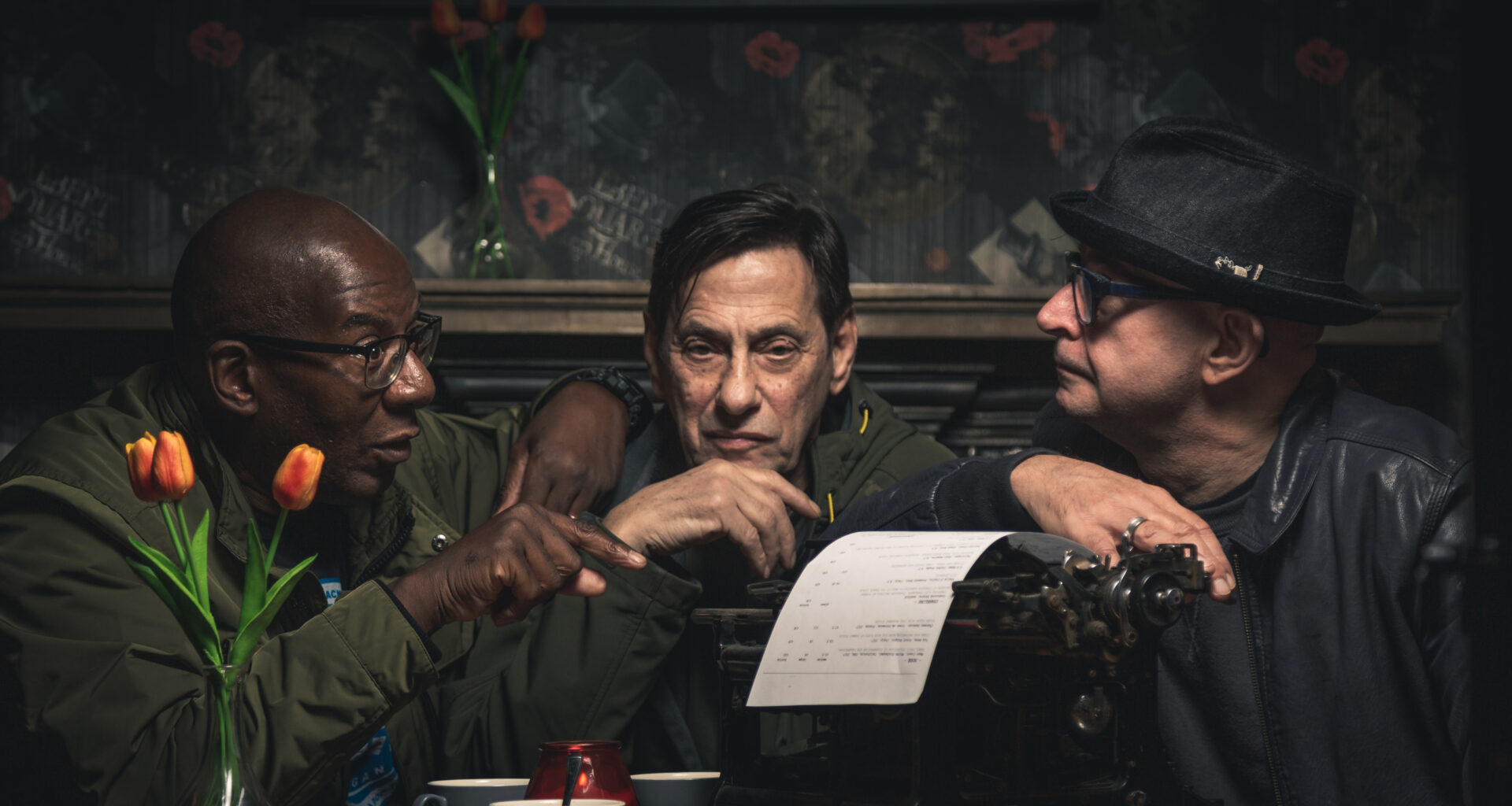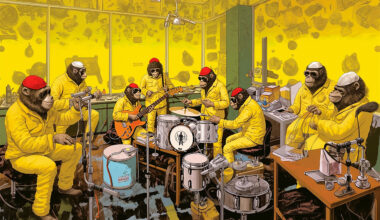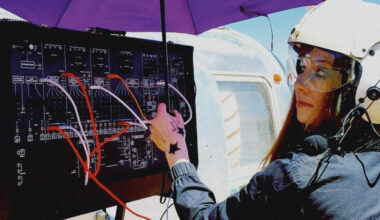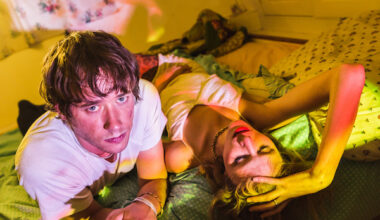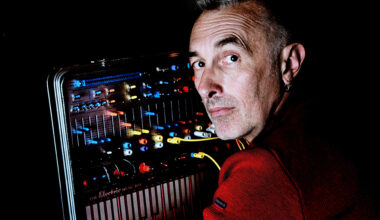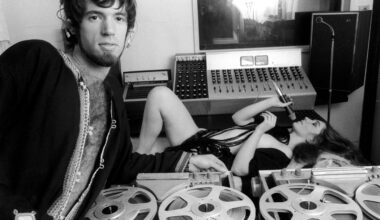Still going strong after four decades, A Certain Ratio modestly put their longevity down to lack of fame. Their new album, ‘ACR Loco’, which fuses many of their influences throughout those years, says otherwise
“It does change things if you have a hit,” says Jez Kerr, one third of Manchester stalwarts and mercurial alt-funk vanguards, A Certain Ratio. “It puts a stamp on you, and that becomes who you are. When we started out, we were quite grey and industrial. We attracted the raincoat crowd. Then we started playing Brazilian music, and they thought, ‘What the fuck’s this?’.”
The Factory legend looms large in A Certain Ratio’s story. Its inescapable lore continues to grow, decades on. ACR were one of the first bands to debut on Tony Wilson’s now-archetypal label with the Martin Hannet-produced ‘All Night Party’ in 1979. But despite a musical legacy that lingers everywhere, ACR have remained an underground entity, and unlike their Factory peers – Joy Division, Happy Mondays, New Order – they’ve never had a commercial hit.
“‘Shack Up’ is probably the most recognisable tune that people think is a hit,” laughs Kerr. “All of our contemporaries got onto ‘Top Of The Pops’ and did their big single – we never did that. I would have liked it to happen at the time, but looking back I think, ‘Well, we’re still underground’. The money would have been nice, but it’s good that we’re not well known. People in Manchester still don’t know who we are.”
A Certain Ratio formed in 1977, and were central to the Factory narrative. Tony Wilson once described them as having “all the energy of Joy Division, but with better clothes”. The two founding members, Simon Topping and Peter Terrell, exited the band in the early 1980s, leaving Kerr, Martin Moscrop and Donald Johnson as the core members.
They released five albums on the label, followed by a stint at A&M, and in the 1990s signed to Rob Gretton’s eponymous imprint, Rob’s Records.
Although the hits weren’t forthcoming, their unique sound remains highly influential, thanks in no small part to the “Brazilian” music Kerr describes – the alchemical ACR groove that is as indebted to the New York disco scene as it is to Manchester’s Haçienda. Their colourful percussive flair was inspired by groups such as Chic and Parliament-Funkadelic, providing an anomalous, yet welcome, antidote to the often grey and rainy north.
The passing of the decades has seen many of their contemporaries burn out or fade away, yet Kerr, Moscrop and Johnson appear to be more energised than ever as they discuss ‘ACR Loco’, their first album in 12 years, with a palpable air of high spirits.
“I don’t think we’d be together now if we’d had a hit,” says Moscrop. “One of the reasons for the longevity of the band is that having hits ruins a lot of people. Of course, we wouldn’t mind a bit more radio play, but bands who have hits don’t make albums like ‘ACR Loco’.
“The good thing about it is that it’s an album you can play from beginning to end and enjoy as a whole. There are 10 standout tracks. If any of them are hits that’d be a bonus, but if they’re not, the album is a hit as far as we’re concerned.”
Working once again with their ever-diverse musical palette, ‘ACR Loco’ comes across like a “best-of” package. It’s an all-killer, no-filler record which, as Kerr explains, “is a culmination of everything we’ve ever done”.
It seems that distilling over 40 years of different styles and directions into these 10 tracks came naturally.
“We did it without thinking, really,” says Moscrop. “It’s important not to overthink it. We were all so excited about doing it, it was hard keeping up with the speed that ideas come out at.”
“Throughout our career there’s never been any planning,” adds Kerr. “As you can probably tell from some of the things we’ve done!”
Since their last studio album, 2008’s ‘Mind Made Up’, ACR have revitalised themselves with a steady touring schedule, which has helped hone their live sound. By the time it came to the new record, which was written predominantly in the studio, the ideas really did flow thick and fast.
“We learned how to do that when we did ‘Sextet’ in 1982,” says Kerr. “We had a month to do that album. That’s why it stands out for me. It’s got a freshness and vitality that you can only get when you actually write in the studio.”
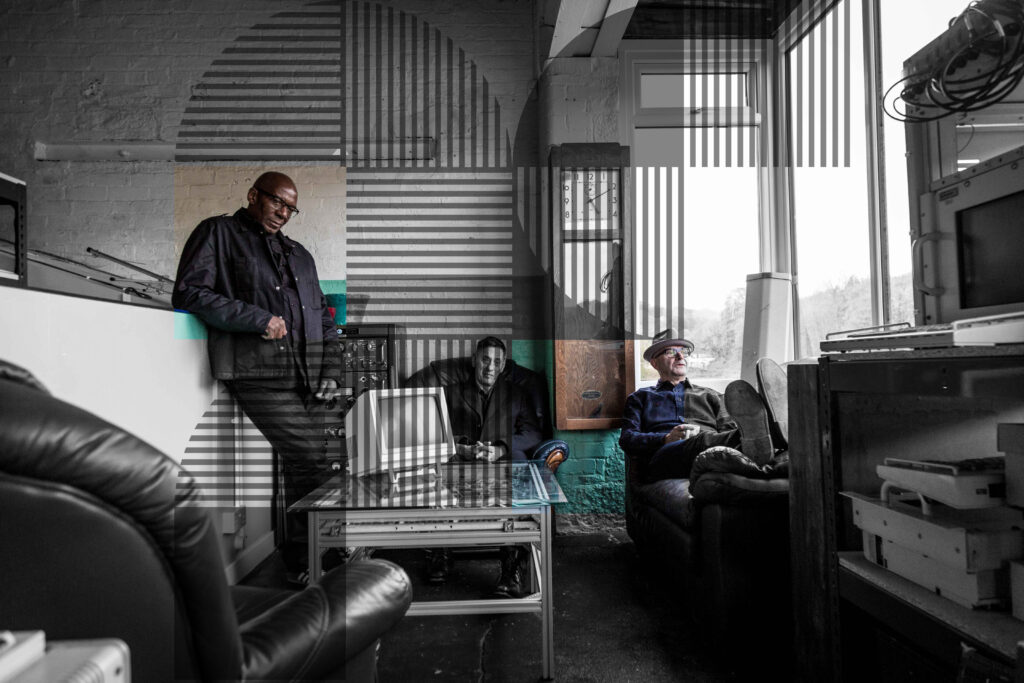
ACR Loco’ was recorded by the core line-up of Kerr, Moscrop and Johnson, with essential contributions from their live band – Tony Quigley on sax, Matt Steele on keyboards and long-term collaborator, the late Denise Johnson, adding vocals. Additional guests appear in the form of frequent touring partners, Sink Ya Teeth’s Maria Uzor and Gemma Cullingford, Gabe Gurnsey and Manchester heavyweights Mike Joyce and Eric Random.
“Eric is as old as the band,” laughs Johnson. “And Denise is part of the fabric of ACR.”
“We all feel very strongly about new music,” adds Moscrop. “We listen to a lot of it. It’s the younger bands that inspire us to do what we do, although we have a lot of influences from the past that we still draw on. As soon as we hear that someone’s been inspired by us, we start listening to them straight away.”
“Years ago, I can remember Jez raving about The Orielles, way before they were signed,” recalls Johnson. “If one of my guys are enthused, then I know I’m going to be enthused too.”
There’s a sense of reciprocal good will at play within ACR. According to Moscrop, they were unequivocally supported by Rob Gretton, Tony Wilson and Alan Erasmus from the beginning. Another formative encounter came in 1979, when ACR were the warm-up act on a Talking Heads UK tour. David Byrne stood at the side of the stage and watched ACR’s performances every night. His band had some salient advice to share too.
“Tina Weymouth showed me how to stretch my bass strings to make them last longer. And they also told us to get a tuner,” laughs Kerr. “So you can definitely put Talking Heads in the category of bands that helped us on the technical side.”
At another point in ACR history, a US tour nearly went sour before Tyrone Downie, keyboardist with Bob Marley And The Wailers, stepped in.
“We had our gear pinched from Manchester Airport and when we got to New York, Tyrone lent us some,” explains Kerr. “We had a terrible soundcheck for a Ritz gig, so we went back to his apartment and spent three hours jamming. No one recorded it. It’s a lost album!”
For new bands nowadays, the idea of touring the States seems teasingly out of reach with all the costs and logistics involved. One of the biggest changes ACR have witnessed over the years is the shifting landscape of the music industry.
“It’s changed massively,” says Johnson. “When we used to go out in the early days, there were loads of little underground clubs. They weren’t very expensive, they weren’t dress-code oriented. There was an urban feel about it that you don’t get now. Today, it’s a lot more business-like. In the old days, you did things to break even, and to make things happen.”
It’s hard to imagine labels and venues like Factory and The Haçienda, with their fabled tales of DIY spirit and carefree excess, existing in the present day.
“The Manchester scene has, in some ways, fallen victim to its own mythology,” says Moscrop. “The legacy of Factory and The Haçienda holds people back because Mancunians tend to embrace the past too much. There’s not enough emphasis on what’s going to happen in the future.”
“There is a massive mythology,” agrees Johnson. “There are a lot of people who remember going to Joy Division gigs when there were only around 30 in the audience. It always seems to me that people are wanting this thing that they can’t have. They’re still talking about The Stones Roses… it’s been and gone. I think we’ve benefitted from being able to look back, but we need more forward momentum.”
The new album sees the band moving along parallel planes in time, drawing on the post-punk funk of the late 70s and their slicker 80s and 90s fare, melding it all together into a record that feels distinctly now. A golden ratio, you could say.
‘ACR Loco’ opener, ‘Friends Around Us’, was written with the berimbau, a single-stringed Brazilian percussion instrument, in mind, and the exuberant acid house wiggle of ‘Yo Yo Gi’ is also focussed on a very specific sound.
“Me and Jez had been DJing together quite a lot,” says Moscrop, “and were listening to a particular track that has a really good cowbell riff in it. We basically made a track in the same style of this other one we liked.”
‘Always In Love’ is dreamy electropop, a nod to ACR’s 1990 track ‘Won’t Stop Loving You’, with the lyrics “tweaked a little bit to represent the alienation… of me”, laughs Kerr. Darting in another direction entirely, ‘Bouncy Bouncy’ evolved from an idea inspired by US funk band Zapp and their classic ‘More Bounce To The Ounce.’
“We were just finishing mixing it one day, and Jez was in his usual spot, outside the control room having a cig,” says Mostrop. “He came running into the studio and said, ‘We’ve got to get a spring on it! We’ve got to get a boing sound on it!’. What we found out was that you can’t have a spring on a tune without it sounding like a comedy spring.”
“It was like Leonard Cohen writing the most beautiful poem, or Lou Reed finding the lost chord,” chuckles Johnson. “That was Jez’s seminal moment.”
The most poignant juncture on ‘ACR Loco’ is undoubtedly ‘Family’, a dancefloor anthem featuring Denise Johnson in full, resplendent diva mode as she declares “Black is white / White is black”.
“It was written prior to the Black Lives Matter movement,” says Kerr. “The ‘black is white’ lyric is about the fact that you can’t believe anything you read just now. But the lyrics really do portray our sentiment towards Black Lives Matter too.”
Denise Johnson, a pioneering soul and dance vocalist, passed away suddenly in July 2020.
“It was a complete shock to all of us,” says Kerr. “We still haven’t come to terms with it.”
Tributes to the singer primarily cited her work with Primal Scream on their landmark 1991 album ‘Screamadelica’, but the bulk of her regular work was with ACR, who she sang with for more than 25 years.
“That’s kind of a reflection of where we are today, isn’t it?” says Don Johnson. “All they could talk about was Primal Scream because they’ve had hits and everyone knows them. That kind of annoyed me. It annoyed me a lot. But then I realised that it’s just a press thing, it’s their way of being able to own something. It still hurts. You wake up in the morning and keep realising that you’re never going to see her again.”
“Denise would constantly comment on Twitter about how people were portrayed wrongly,” adds Moscrop. “It’s something that she really disliked. We’ve lost someone who was so important to us and who made so many good records with us. We’re just blessed that we’ve got her on this album.”
With four decades under their belt, it’s obvious that ACR are, as ‘Family’ suggests, more than just a band.
“We do actually like each other,” says Johnson. “We’re like brothers that bicker, but we can make each other laugh too. If I’m being stroppy, or whatever, Martin will just say, ‘Oh, he’s on one again!’.”
“We know each other’s faults so well that they’re excusable,” laughs Moscrop. “I think we value each other more now than we have done in the past. And the way we appreciate each other has really come out on this album.”
As the name suggests, ‘ACR Loco’ is riotous, life-affirming and bristling with energy. Is the secret to the band’s long-lasting influence in remembering that there should always be an element of fun?
“That’s the key word, yeah,” says Kerr. “Because when you start out you’re having fun. In the middle years when you’re trying to make a living, it’s shit! And then when you get old, you’re like a kid again, and it’s fun once more. That is definitely reflected in our music.”
‘ACR Loco’ is released by Mute
